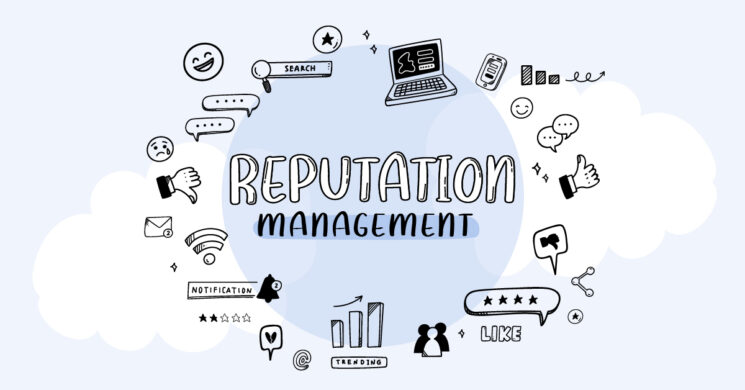It’s crucial for organizations to proactively manage their online reputation, preventing negative publicity and crises. Reputation management involves tracking customer perceptions online and on social media, aligning them with the company’s values.
To enhance this process, consider leveraging online reputation services, including guaranteed removals, which actively eliminate or mitigate potential threats. Proactive reputation management and specialized services can significantly reduce the risk of reputational damage.
We’ll discuss best practices to help your organization maintain its globally recognized reputation.
In This Post
Understanding The Importance Of Reputation Management And The Potential Consequences Of Neglecting It

Reputation is crucial. It can make or break your business, career, or personal relationships. Managing your reputation is more important than ever. Neglecting it can have disastrous consequences, from losing customers to damaging relationships.
Reputation management is about controlling how others perceive you. It requires a proactive approach, including building a positive image, addressing feedback, and taking corrective action. Remember, your reputation is what others think of you, so take ownership.
Developing A Proactive Strategy For Reputation Management By Implementing Consistent Branding Across All Communications
Managing a business’s reputation requires constant vigilance. A negative comment or review can spread online, damaging the company’s image. That’s why it is essential to implement a proactive reputation management strategy.
By ensuring consistent branding across all channels, companies can establish a strong and recognizable image in customers’ minds. This entails crafting a cohesive message on social media, email, advertising, and other platforms.
Building a consistent brand fosters trust and sets the company apart from competitors. In today’s competitive marketplace, proactive reputation management should be a top priority, and guaranteed removals can help achieve that.
Leveraging Social Media for Proactive Reputation Management

Social media is a cornerstone of proactive reputation management. It’s not enough to simply respond to comments and reviews; a brand must actively engage with its audience, creating a dialogue that fosters a positive image. This involves sharing content that resonates with your audience, showcasing your brand’s unique personality, and consistently updating your social media profiles to keep your audience engaged and informed. Utilizing analytics tools to track engagement, sentiment, and trends is also crucial. These insights not only help in identifying potential issues at an early stage but also aid in crafting strategies that resonate with your audience. A proactive social media presence helps in preemptively addressing potential reputational risks and reinforces a positive brand image, making it an indispensable tool in the modern reputation management toolkit.
Exploring Strategies For Engaging Your Audience To Build Strong Relationships And Trust
Engaging your audience is key to building strong relationships and trust. The first step is understanding who your audience is and what they need from you. Once you have that understanding, you can tailor your approach to meet their specific needs.
One effective strategy is to use storytelling to connect with your audience on an emotional level. Use real-life examples to illustrate your point and make your content more relatable. Another approach is to encourage your audience to participate actively in the conversation.
Ask for their input and feedback and thoughtfully respond to their comments. Ultimately, you want to create an environment where your audience feels heard and valued and is eager to stay engaged with your content over the long term.
Identifying Early Signs Of A Potential Crisis And Ways To Address Any Issues Before They Escalate Quickly
It’s crucial to identify early signs of a potential crisis. Stay vigilant, monitor your environment, and swiftly address any issues before they escalate. Whether it’s a market shift, a natural disaster, or a workplace conflict, taking swift action can prevent a crisis from spiraling out of control. Prepare for the worst with effective communication and risk assessment tools. Start identifying early warning signs today and safeguard your organization, community, and yourself.
Establishing Policies And Procedures To Ensure Compliance With Regulations, Industry Standards, And Ethical Guidelines
Regulations and ethical guidelines are constantly evolving, so businesses need to establish comprehensive policies and procedures to ensure compliance. Whether it’s regulations imposed by governing bodies or standards set by an industry, keeping up can be challenging.
Creating a framework that promotes adherence to these guidelines is essential for any successful business. By having clear and concise policies, companies can build a culture that prioritizes ethics, compliance, and safety. In doing so, businesses can avoid costly fines, reduce reputational damage, and build consumer trust.
Creating An Effective Monitoring System To Track Customer Feedback To Stay Ahead Of Any Negative Publicity

Tracking customer feedback is crucial for business success. Negative publicity can quickly spread through social media and online reviews, damaging a company’s reputation. To stay ahead, establish an effective monitoring system to listen and respond promptly to customer feedback. This valuable insight helps make informed decisions for improving products or services and building stronger customer relationships.
Incorporating Customer Feedback into Business Strategies
Actively soliciting customer opinions through diverse channels like surveys, feedback forms, social media polls, and direct interactions can provide a goldmine of insights. This feedback should not only be monitored for reputation purposes but also analyzed to guide product development, service improvements, and overall customer experience enhancements. Demonstrating to your customers that their opinions are not just heard but are instrumental in shaping your business decisions can significantly boost your reputation. This approach not only improves your products and services but also solidifies your standing as a customer-centric organization. In today’s competitive market, where customer loyalty is paramount, integrating customer feedback into your business strategy is not just beneficial; it’s essential for sustained growth and a robust reputation.

Final Thoughts
Reputation management is vital for business success. Failing to develop a proactive strategy and monitor customer feedback can lead to costly mistakes and reputational damage. Invest in understanding your audience, crafting meaningful interactions, and developing effective messaging.
Engage in reputation monitoring and create a crisis communication plan. Strategic reputation management requires dedication and attention to detail. Start today by leveraging the tips in this blog post to build a positive brand identity. Don’t miss out on any opportunities; success starts now.